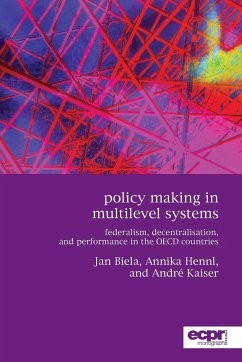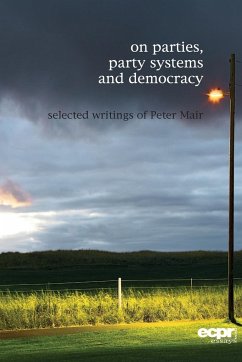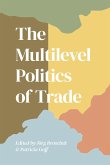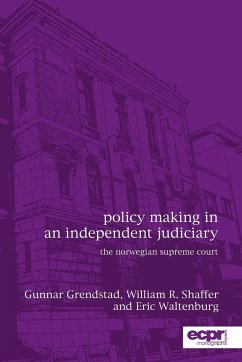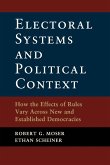Does the territorial state organisation matter for effective policy making, and if so, in what way? So far, we know relatively little about its effects on policy making and policy outputs. Starting from the hypothesis that decentralised policy making has positive effects whereas federalism has a slightly negative impact on policy performance, this book systematically tests the independent and interdependent effects of different combinations of federal/unitary and decentralised/centralised structures of decision making and implementation. Based on a mixed methods design it first quantitatively tests the relationships for the OECD countries in cross-sectional as well as panel designs. In a second step, qualitative case studies are conducted for four countries: federal-centralised Austria, federal-decentralised Switzerland, unitary-decentralised Denmark, and unitary-centralised Ireland. The authors study two space-related policy areas, both with regard to the decision making and the implementation stage of the policy-making process: regional policy and transport policy.
Hinweis: Dieser Artikel kann nur an eine deutsche Lieferadresse ausgeliefert werden.
Hinweis: Dieser Artikel kann nur an eine deutsche Lieferadresse ausgeliefert werden.

